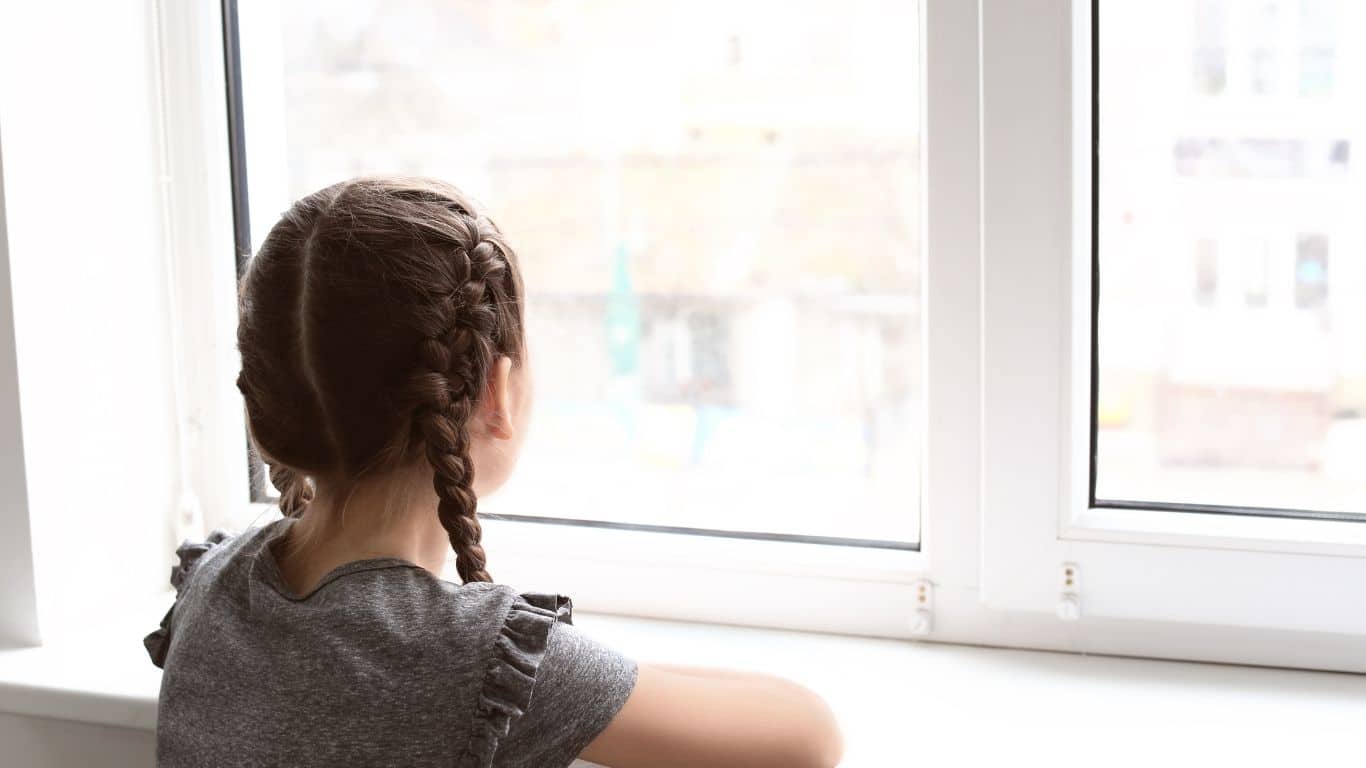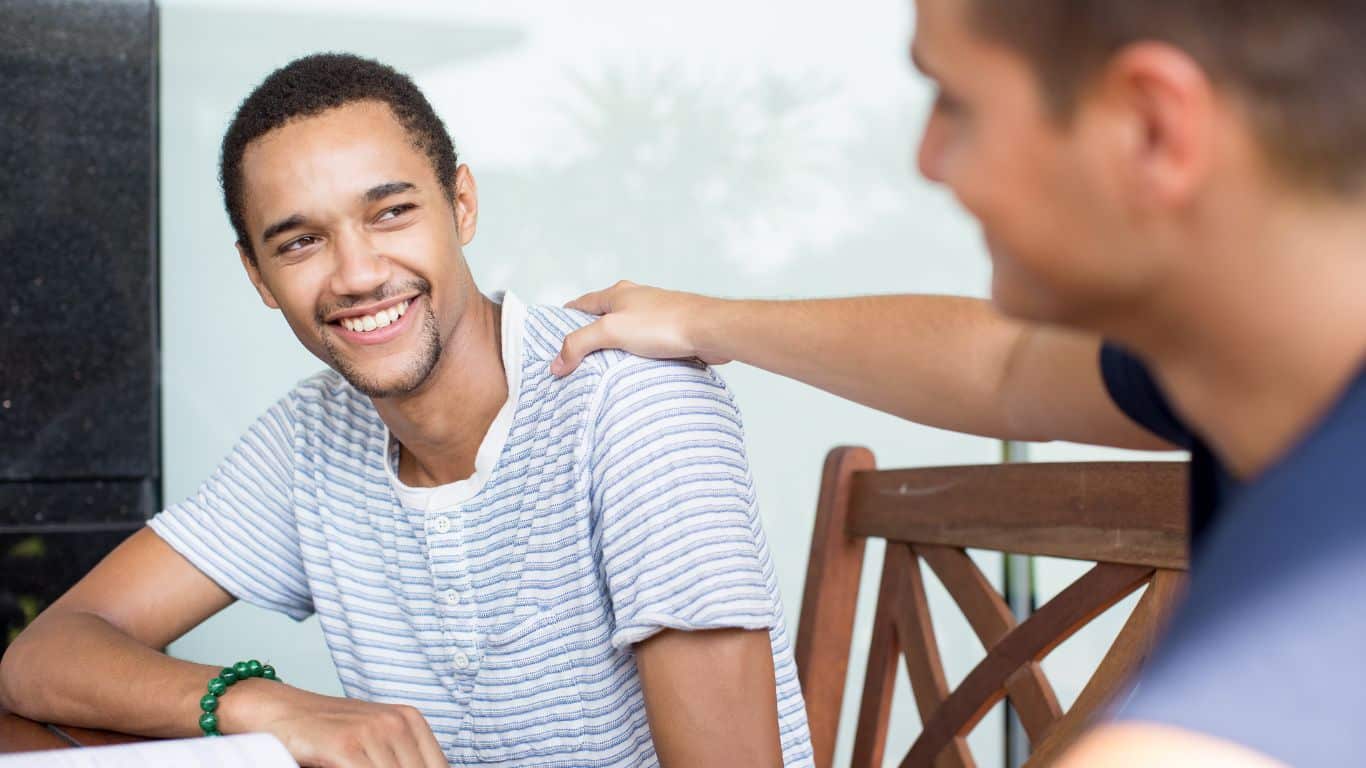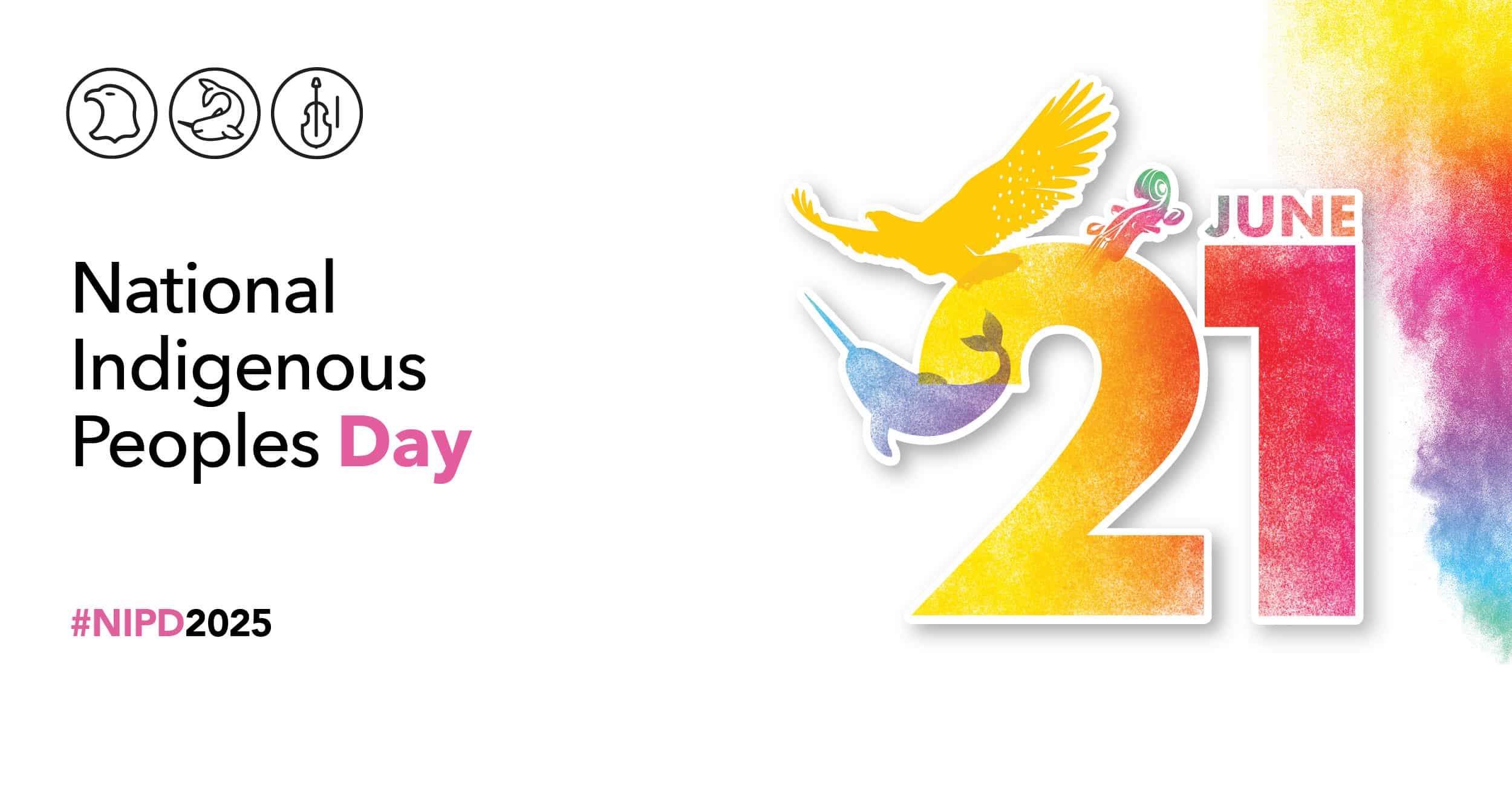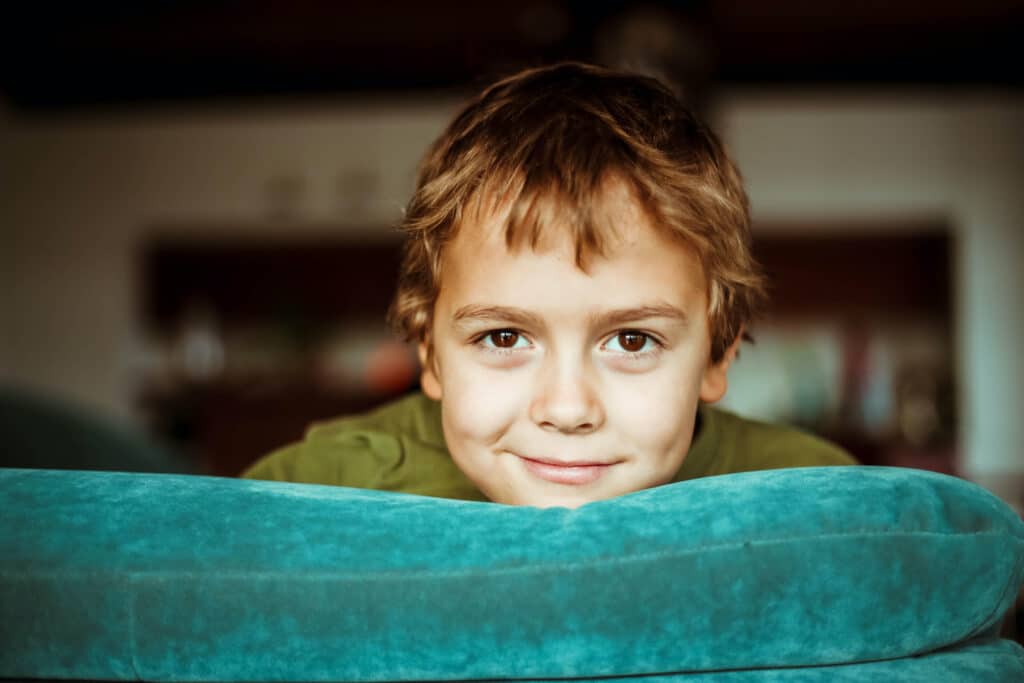The experts claim that abandonment is an issue for all adoptees. How can parents help their children handle their losses?
We know that when a mother is considering whether she will be able to raise her child, the stress she experiences affects the developing brain of the fetus.
Primed to connect on an unmistakably profound level at birth, the newborn or older baby or child, regardless of the excellence of the care provided afterward, experiences biological as well as psychological loss when separated from his original mother—although quality care does mitigate the damage. Subsequent moves to foster care and then into an adoptive home leave their mark on the child’s psyche. Any stress associated with these moves flood the growing brain with corrosive neurochemicals that pave the way for the individual to be more vulnerable to stress than the individual who has consistent care from his original parents.
If the child spends time in an orphanage where immediate responsiveness to her needs may not happen and then, sometime later, the child is suddenly and without warning handed over to adopting parents—which can be experienced as a kidnapping from the caregivers he or she has grown to know—this too will be woven into the child’s somatic memories and increase vulnerability to stress. Ever after, these memories can be triggered by unrelated events that remind the brain of earlier separations or times of unmet need.
Universal for adoptees
The length of time before the child was placed into a permanent home, the number of moves, the quality of individual care provided before placement, and the child’s individual response to such changes, influence how he or she is affected by the “abandonments” that take place with each move.
It is my belief that, on some level, all adoptees are affected by losing one or more caregiver and by the transitions he or she has made through adoption. My work with adoptees has led me to believe that grappling with perceived abandonment is a universal issue for adoptees and that this is a core issue for all who care for these youngsters—adoptive parents, social workers, birth parents, therapists, and adult adoptees.
Unfortunately, we have left this task to adoptive parents to handle on their own. When we’ve given any advice, it’s been to tell their children’s stories with a positive spin, describing their birth parents in the most positive light possible so as not to convey the idea that the child’s genetic inheritance is flawed or that they are, or were, unlovable. Because parents may not understand that abandonment feelings will lurk under the surface, they come to believe that their job is to put an emotional Band-aid on the feelings of sadness, fear, anger, shame, or confusion that stem from having a part of the child’s story remain unknown. I believe that it takes the entire adoption community to help children understand and come to grips with abandonment.
Effects of abandonment
We are learning—from the true experts on adoption—adult adoptees, that abandonment issues tend to create a fundamental insecurity amongst adoptees. Somatic memories associated with early losses that the individual may not remember, but lie deep within, make them vulnerable to stress, and fear of possible future loss or rejection.
The adoptees may put on a mask of self-reliance, extreme independence, or nonchalance as a way to keep others at a distance so that they cannot hurt them or let them down. Even parents may be deceived by the individual’s facade of strength and self-reliance and not see through to the equally intense feelings of vulnerability that lurk below. If feelings and thoughts are not acknowledged and validated in a way that helps the adopted person process them directly, the adoptee may develop compulsive behaviours as a way to cope.
Some adoptees report always sizing up situations to make certain that they are emotionally safe, that others are not about to let them down, or abandon them. This can be emotionally exhausting and leave them insecure and anxious, which gets carried into their relationships with others.
Any loss, no matter how seemingly small or insignificant has the potential to trigger tremendously intense feelings, leaving the adoptee feeling out of control. Many adoptees have difficulty tolerating intimacy with parents and then later with friends, partners, or even their own children. So afraid to trust their own lovability or others’ ability to make and keep commitments, so fearful of being “abandoned” again, they may sabotage relationships. It is as though love represents a threat, and, if they allow themselves to love or be loved, they increase the risk of being abandoned again. They may leave another before he or she can leave them. They may “act out” or “act in” (become depressed and withdrawn) and undermine relationships, driving others away, which then proves to them that no one can keep a commitment.
Some adoptees describe cutting themselves off from their inner feelings. Their actions become substitutes for the real emotions they have suppressed. Running away, or slipping automatically into anger or rage (rather than allowing themselves to experience sadness), may become a big part of their emotional repertoire. Some deny or suppress interest in their birth parents; so when asked questions that might help them to express troubling feelings, they may claim that they don’t have any.
Individuals who think this way may also try to be such a “good” person that no one would want to leave them. They may become a people pleaser and trade their own needs and desires for acceptance. Or the opposite may happen—they may give up and let their “bad” self show since no one will want to get or stay close anyway.
Supporting parents
I would urge adoption agencies to prepare prospective parents for the ways that this issue will emerge over time and to begin, at the time of referral, to help prospective parents understand and plan for how they will need to intercede.
Social workers should require prospective parents to make a plan for how they will tell their child about their birth parents, the early chapters of their lives and how, at various developmental stages, they will carry out this plan. Particular attention should be paid to this when a child is known to have developmental difficulties. Whenever possible, birth parents should be viewed as part of the team in raising a healthy child, and resources should be provided so that parents can find help when they need it.
Help for children
Parents must understand that they will need to become the initiators of discussions and that both parents in a two-parent family should be involved.
Adults need to validate the child’s feelings, and they need to learn and model effective communication skills. This involves listening for and helping children express feelings, learning to interpret behaviour as the “language” of the child for sharing feelings, and acquiring the skill of reflective listening.
Parents need to make educated guesses about what a child may be feeling in a way that does not back the child into a corner, or force him or her to disclose feelings, but communicates that one is concerned.
It’s important that children learn how to mourn losses and be supported when they experience a loss, no matter how minor or insignificant the loss seems to the surrounding adults. Grieving includes expressing sadness, guilt, shame, anxiety, and anger—feelings we tend not to be very comfortable with. Anger is important for parents and others to focus in on. Healthy ways to express anger need to be modelled and talked over. In our society, anger is much more acceptable in males, while expressing sadness is often seen as a sign of weakness. Parents and other caring adults need to help boys know that it is healthy and permissible to own their feelings of sadness and vulnerability.
Children need to forgive their birth parents, adoptive parents, and all others for making plans that shaped their lives without their knowledge or input. They also need help to express anger, then understand and forgive their birth parents as people who did their best given the circumstances and the choices that were available at the time. This doesn’t mean that the child must agree with the decisions that they made or accept the behavioural choices made.
International adoption
For children who were adopted internationally, there are often additional layers to understanding and coping with abandonment issues.
Parents should not gloss over the original loss because the details of the circumstances are unknown. Studying the social context in which the abandonment took place is critical to being able to convey what most likely happened and why—although parents and others need to be very clear and accurate about what cannot be known for sure. Rather than trying to focus on how the birth parents probably hoped that the child would be adopted, that orphanage caregivers were loving, that government officials had their best interests at heart, or that adoption was the means to a “better” life and that life in an orphanage would have been inferior, the following things are important.
Parents should learn all that they can about how children are abandoned or relinquished, then processed and cared for, and then try to imagine this through the experiences of a young child. Even at a young age this can be shared with a child, with details elaborated as the child grows and can conceptualize more, so that the events and feelings can be reactivated for the child. While many parents avoid this because they think it is cruel and unnecessary, the reality is that re-creating for the child what they probably experienced is much like turning the light on in a dark room to help the child see for herself what is making the dark shadows so that the terror she feels can diminish and, hopefully, not reoccur. A child cannot get past fear and anxiety that stem from somatic rather than remembered memories. Reactivating the source of troubling feelings can free the child from their power.
Children benefit from participating in guided experiences with other adoptees. They can benefit from enrolment in workshops for adopted children, heritage camps, and support groups. They can also benefit a great deal from mentorship programs in which older or adult adoptees spend time getting to know them, sharing how they have become who they are, and modeling that one can and usually does become a pretty terrific and fulfilled person as an adoptee. There is a very strong need for camaraderie amongst adoptees, but discussions and sharing of feelings does not come just through contact—it has to be nurtured by caring, skilled adults who can help adoptees share experiences and ways of coping.
Art is another important way of recognizing and giving voice to feelings, fantasies, and thoughts for children. Drawing, painting, sculpting, puppetry, drama, dance, and other artistic endeavors are more natural, comfortable, and satisfying ways for children of all ages to unlock some of the feelings and hidden issues they need to bring to the surface in order to understand themselves and have successful lives.
When parents make these opportunities happen, they may uncork intense feelings that would otherwise leak out in inappropriate behavior so that children will be regarded in a negative light by others, which further erodes self-esteem. Learning to express their thoughts and feelings through the medium of art can help children feel powerful and competent.
Children also need us to cooperate and help them to incorporate and value the “empty spot,” and “the missing pieces,” as well as whatever gains came to them through been adopted. In other words, parental encouragement and support that braids together the joys and the sorrows and the gains and losses will help adoptees see clearly that the combination of all those things make them who they are and contributes to who they will become.
Adoptees need and deserve to know that they can and should celebrate the duality of their lives—having membership in two families, two sets of family history, two cultures, the fullness and the emptiness, the known and the unknown.
They deserve to accept their lovability, connectedness to each other and their two families, and to celebrate the unique and worthy person they are because of, and not in spite of, their life history.






